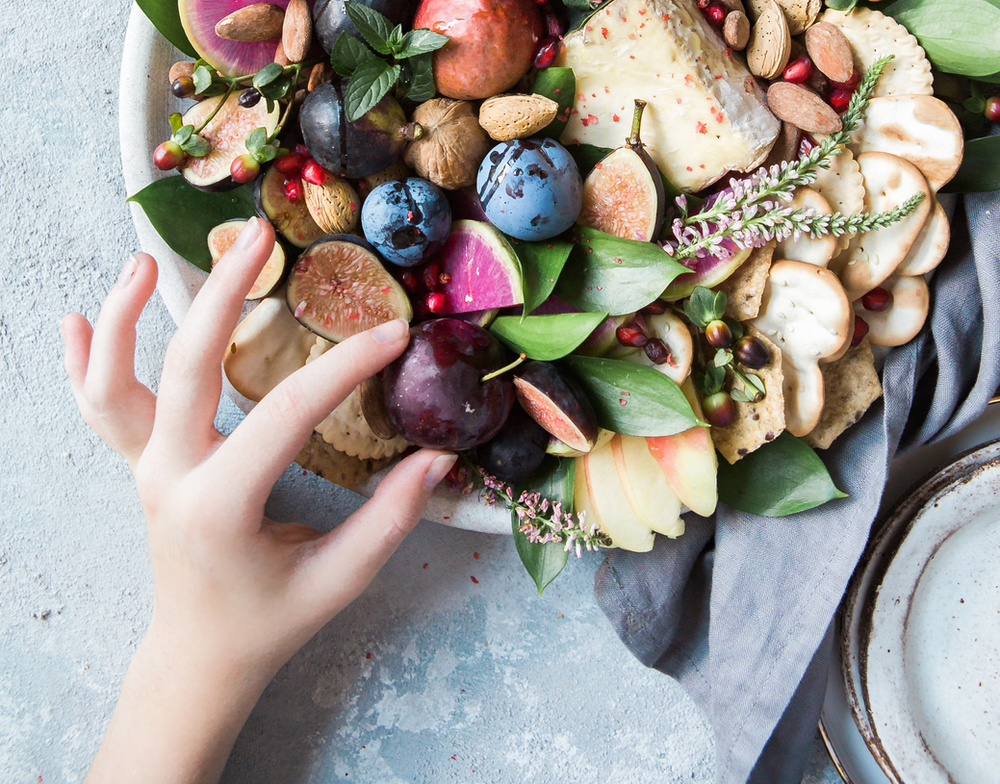
When you visit a Montessori Early Childhood classroom, you're likely to see children preparing foods of all kinds: chopping apples, mixing dough for bread, steeping a cup of tea to share with a guest, serving carrots or other vegetables they've peeled and cut. And you're likely to see children eating foods that you might not have expected them to try at home, setting the table for each other, sitting together, waiting for everyone to be seated before they begin their lunches, and offering each other courtesies that you don't dare to hope for at your own dinner table.
What gives?
We understand that, for children at this age, a primary motivator is the opportunity to make a real contribution to their community. Mealtime is a great time to do that. Children in Montessori classrooms don't practice slicing with pretend knives and velcroed wooden fruit. Instead, they learn to manage the real tools of a kitchen, to prepare a variety of healthy, wholesome options, and to share them politely with each other. Food preparation is not merely a means for fine and gross motor development (although it does that, too,) but an important connector for the society the children are creating in the classroom. It provides a sense of independence and accomplishment, and unites children through an important shared experience.
You can capture this at home. Your children want to be involved, active contributors to your home community as they are at school. Consider your kitchen space. In the classroom, all the tools the children need to set the table, prepare simple foods, and clean up are accessible to them without reliance on an adult. At home, you might swap out the less-used items usually stored in your lower cabinets for some simple dishware and a utensil caddy, allowing your child to set the table on their own. Look to the lowest shelves of the fridge to offer small containers of healthy food for your child to select when they're hungry. Provide a small jug of milk or cool water for your child to pour their own drinks. Instead of occupying your child with a screen as you prepare dinner, invite them into the kitchen with you to help wash and cut the vegetables, fill pots with water, set the table and cook with you. Your child is more likely to eat the food they've prepared, even exotic tastes. Afterward, clean up the kitchen together, with each family member working together.
Keep your patience: at first, this might be messier and take longer than doing it yourself. That happens in the classroom, too. You can avoid some of the frustration by starting with small skills and then increasing your expectations as your child shows mastery. So, at first, you might direct your child to, "Place the placemats on the table," wait for them to finish and then ask them to, "Place a plate on each placemat," wait and then ask them to, "Place a fork for each plate," and so on. After a few days of that routine down, you can instruct your child to, "Place the placemats, plates and utensils out, please." After a few days and noticing whether your child remembers each step, you can instruct them to, "Please set the table." The same small steps can be used to break down other common mealtime tasks, making them manageable for your child until they've mastered each skill.
Throughout, remember that you are setting your child's habits for their diet and palate for years to come. Fill your fridge with healthy choices, fresh berries and vegetables, and avoid the processed, pre-packaged foods (and avoid making these foods a "reward" for particular behaviors.) When you're packing lunch (with your child!) let them select portions into divided containers, choosing balanced portions of proteins, grains, vegetables and fruits. Make fresh water available and inviting, letting your child cut lemons or limes or wash and tear fresh mint leaves to add to a pitcher of cool water. Model healthy food choices (including healthy portions) in your own diet, and know that you're setting your child up to make the same healthy choices when they're in charge of their own groceries.
#Mealtime #FirstPlane #Primary #ForParents
